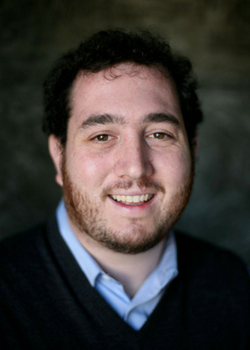“You must not hate an Egyptian, for you were a stranger in their land” (Deut. 23:8)
Don’t hate an Egyptian??
For centuries, the Egyptians had enslaved us. They beat and tortured and eventually tried to exterminate us. Four-fifths of the Torah is taken up with our journey from Egyptian oppression to liberation in the Promised Land. Every year since -- for more than three millennia -- we have retold that story, not merely as a matter of history, but through active, personal identification.
The Egyptians are among the Torah’s greatest villains; and yet, we are ordered not to hate our former tormentors. It is hard to imagine a commandment more challenging to keep than this one – for us, and how much the more so for the former slaves, and their children and grandchildren, who first heard Moses’ stern decree at the edge of the Promised Land.
The Midrash recognizes how supremely difficult, how contrary to human impulse, this commandment really is. In Deuteronomy Rabbah, the Sages write: “See how great are the ways of peace… When another person does something cruel to us, it is natural that it stays in our heart forever. Yet, despite all the evil that [the Egyptians] did to Israel, the Torah has mercy on them and says, ‘You must not hate…’” (Deuteronomy Rabbah 5:15).
Despite the admitted difficulty, the Torah expects us to work on overcoming our natural tendency to return hate for hate. We are called upon to rise above perpetuating that dark and endless circle, to be better than our instincts, as the great teacher Rabbi Naftali Zvi Yehuda Berlin wrote, “The purpose of this mitzvah is to cultivate an elevated soul” (Haemek haDvar, Deut 23:8).
Notice, however, that we are not commanded to love the Egyptians, nor even to forgive them for what they did to us. One can choose not to hate another person but want nothing more to do with them. One can decline to seek further vengeance, but also not seek a renewed relationship. The Torah demands that we not participate in bringing more hate into the world, but it doesn’t whitewash the terrible crimes that were committed against us or dismiss the reality of our collective trauma.
As we make our way through Elul, this month of spiritual preparation for the High Holy Days, many of us struggle with just this question: When we have been profoundly wronged, how can we rid our souls of the poisonous burden of hatred, without excusing the inexcusable? There are no easy answers to that incredibly tricky task, but we know that happiness, our health, and even our very survival depends on finding a way toward a world where hatred is not met with hatred, where the cycle of suffering is not destined to play out forever.


 Download PDF
Download PDF